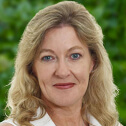Aged care assessments
To receive Government funded aged care services, including in-home care under the Support at Home program, you must first be assessed.
Aged care assessments are usually conducted in your home and are used for people who may need care at home, residential aged care, transition care, or short-term restorative care.
Assessors use the Integrated Assessment Tool (IAT) to assess the eligibility of older people for government-subsidised in-home care.
Previously aged care assessments were conducted by Aged Care Assessment Teams (ACATs) and you may still hear people refer to 'ACATs'. This is just the previous way people were assessed for aged care and is nothing to worry about.
Your assessment is the time to speak up and to say what help you really want and need.
To receive Government Subsidised home care call My Aged Care or visit My Aged Care's website to see if you're eligible. This can be found here.
If you are eligible, then you can either arrange the next steps for your assessment via the call centre or apply online here by following the steps through the My Aged Care website.
The assessment is a comprehensive process that is focused on getting the right care solution for you, whether your needs be physical, medical, psychological, cultural, social or restorative.
Working through your goals and preferences will help you make informed choices about the services and assistance you would like to receive. Two sets of ears are always handier than one so it is a good idea to have someone else with you.
There are no right or wrong answers, so just be as honest as possible. Some questions you could consider are:
- What is important to me (if this includes things like living in a clean house, or doing the gardening, or having clean windows, then mention this.)
- What do I most enjoy doing?
- What makes my life enjoyable and meaningful?
- What’s good right now and what’s not?
- What’s missing?
- What sort of things might help to improve my day-to-day life?
- What support do I need to remain safe and well?
- Where and when do I want that support to be available?
- How do I want to be supported and by whom?
And:
- How much could I be asked to contribute to my care costs?

The assessor will make a time to come to your home and talk to you about how you're managing with day to day life. They also can give you information about home care services in your area.
Annie Donaldson
agedcare101 Registered Nurse and Carer
The assessor might ask your permission to talk to your doctor about your medical history before meeting with you. All information will be treated confidentially.
Once you have been approved for Support at Home and received the results you will be placed on the Support at Home Priority System.
If you were on the National Priority System on 1st July 2025, when your funding becomes available you will automatically go onto the Support at Home system.















